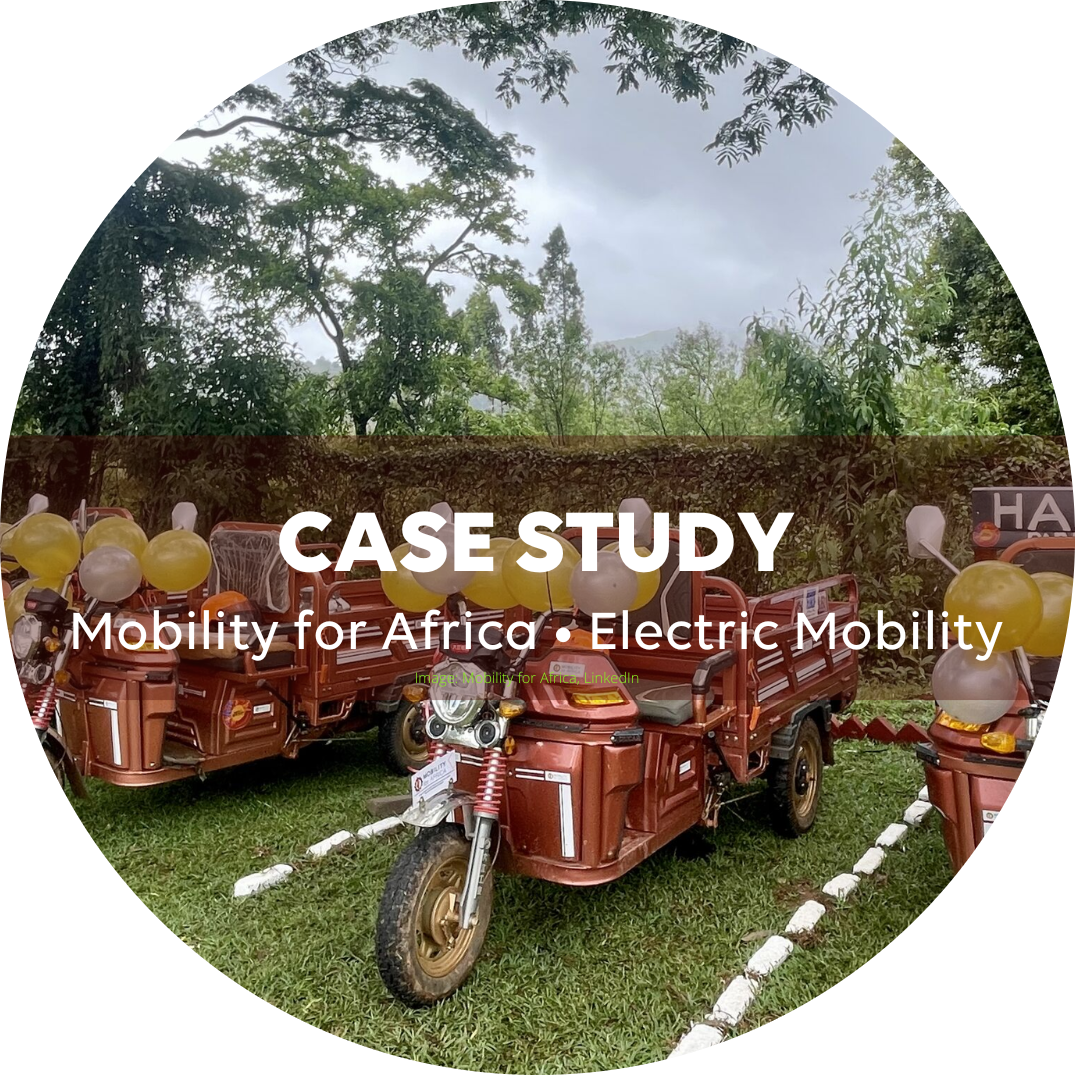Mobility for Africa • Promoting access to sustainable electric mobility in rural areas to empower women
In Zimbabwe, the lack of transport infrastructure has a significant impact on the agricultural sector. To address this, local startup Mobility for Africa has been developing an electric micro-mobility system for rural populations to sustainably improve their mobility and reduce pollution.

In Africa, approximately 450 million people (more than 70% of its rural population) lack access to mobility options due to a lack of infrastructure and transport systems. In Zimbabwe, the lack of transport infrastructure has a significant impact on the agricultural sector, which provides livelihoods for about 70% of the population and 15-20% of the country’s GDP. It provides employment, contributes to economic growth, poverty reduction, and food and nutrition security. An estimated 18,000 new farmers are working in contract and outgrower schemes in Zimbabwe. These small-scale farmers travel long distances on foot or by motorcycle to reach their farms. To address this, local startup Mobility for Africa has been developing an integrated, safe, and replicable electric micro mobility system for rural populations in Wedza, Domboshawa, and Chipinge since 2019 to sustainably improve their mobility and working conditions and help reduce pollution.
- Mobility for Africa, has been providing since 2019 a shared electric mobility service based on “Hambas”, geolocatable tricycles powered by a standardized solar energy battery swap system. This integrated service meets SDGs 1, 5, 7, 10, and 17 and opens up growth opportunities for female beneficiaries in the rural communities of Chipinge, Domboshawa, and Wedza by significantly increasing their income.
- Adopting a mode of community micromobility such as the electric tricycle is one way to achieve “cleaner” mobility. The solution implemented by Mobility for Africa integrates the training of beneficiaries and employees to drive and operate the technological device around the tricycle and batteries. Research and Development (R&D) programme has also been deployed.
- Mobility for Africa supported the Zimbabwean government in developing its framework law and roadmap for electric mobility adoption.


